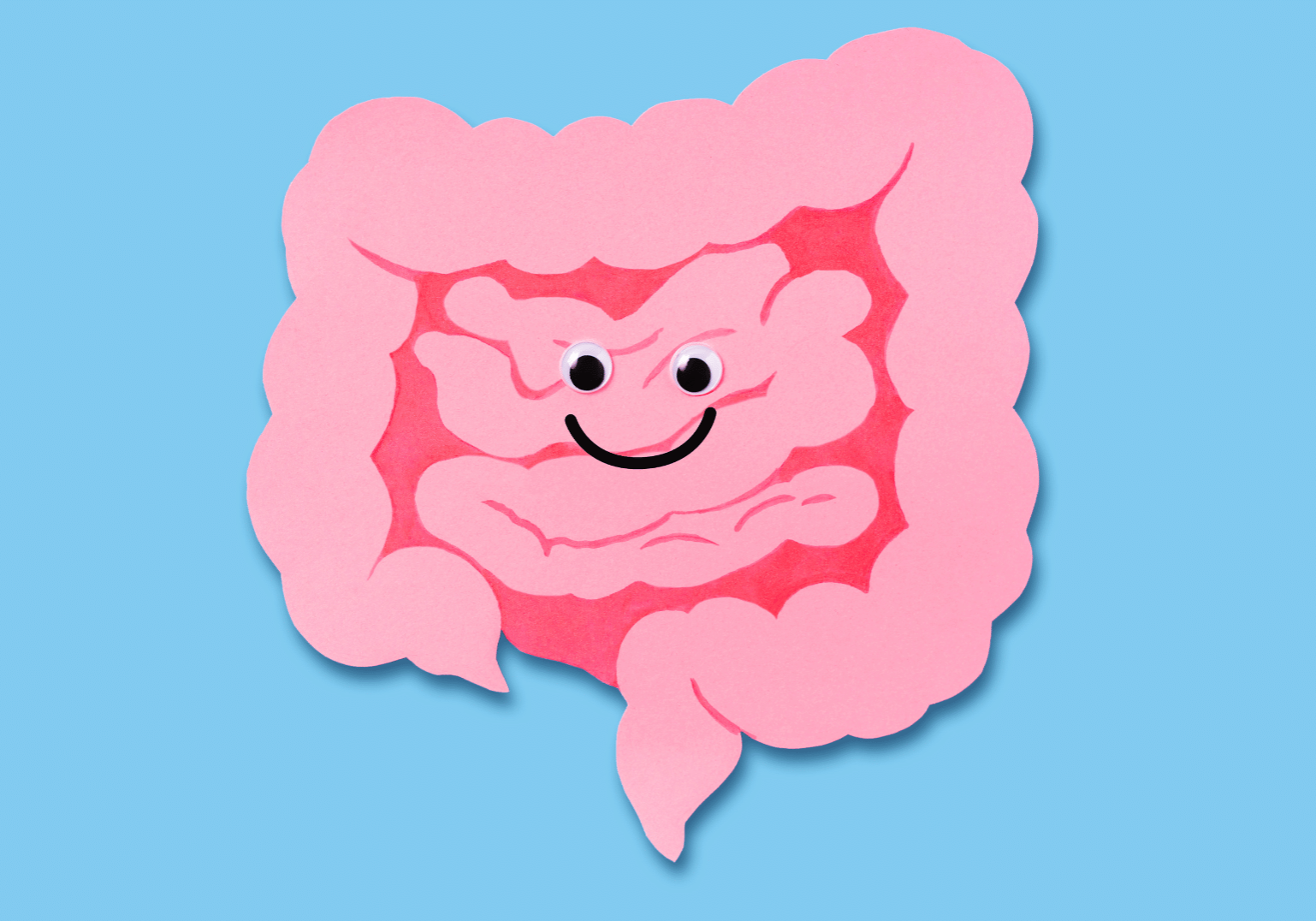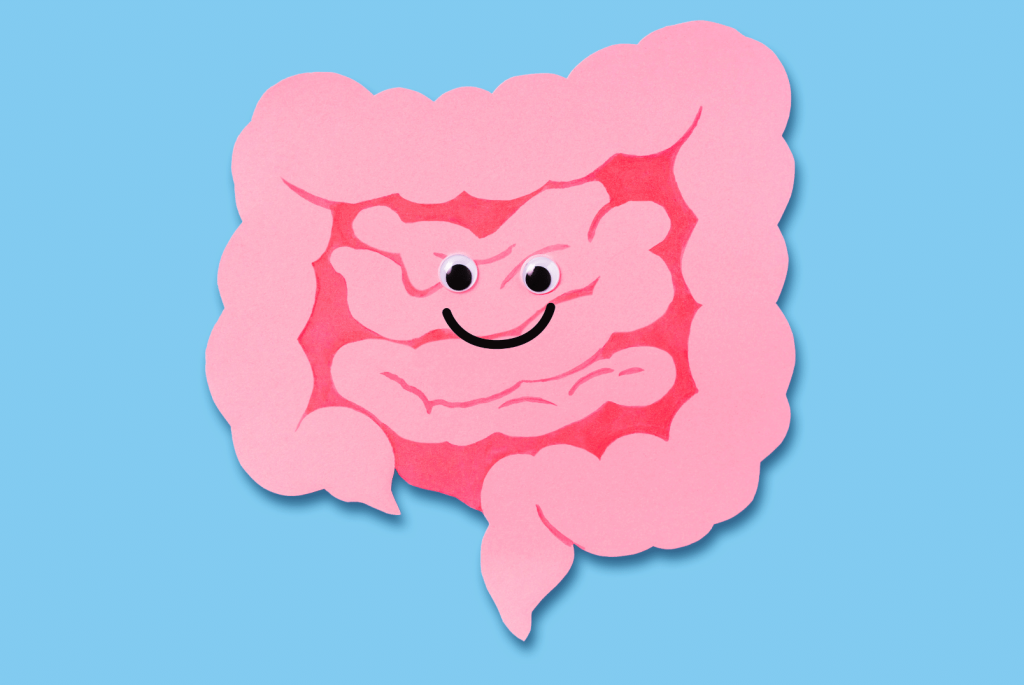What Is Digestive Fire And How Can You Improve It Naturally?
Discover the power of digestive fire for optimal health. From Ayurveda to TCM, learn how it influences metabolism, nutrient absorption, and well-being. Balance and support your fire naturally with mindful eating, herbal teas, probiotics, and more. Consult a professional for personalized guidance.

What Is Digestive Fire?
Digestive fire is known by many different names in traditional medicine systems. Ayurvedic medicine calls it “agni”. Traditional Chinese Medicine (TCM) refers to it as the “transforming and transporting” function. Either way, it is an essential part of your optimal health.

Digestive fire refers to the body’s metabolism, specifically in the gut. It describes how much energy your body has to transform and break down food, absorb nutrients, and eliminate waste.
The strength and balance of the digestive fire play an important role in your health and well-being. Also, the TCM and ayurvedic concepts of digestive fire explain the changing nutritional needs with the seasons and health conditions.
What Are Signs And Symptoms Of Low And High Digestive Fire?
Signs And Symptoms Of Low Digestive Fire:
- Indigestion: Symptoms such as bloating, gas, abdominal discomfort, and a feeling of fullness after eating.
- Slow digestion: Food takes a long time to digest. This results in a heavy, sluggish feeling after meals.
- Weak appetite: There may be a lack of interest in food or a feeling of fullness even with small amounts of food.
- Nutrient deficiencies: Low digestive fire can slow the absorption of nutrients. This leads to deficiencies in vitamins, minerals, and other essential substances.
- Fatigue: Poor digestion can result in low energy levels. Do you ever feel like you need to sleep after eating? It also causes a sense of fatigue even with enough rest or sleep.
- Irregular bowel movements: This may include constipation, diarrhea, or alternating between the two.
- A coated tongue: A thick white or yellowish coating on the tongue goes along with poor digestion.
Signs And Symptoms Of High Digestive Fire:
- Acid reflux: Excessive digestive fire can cause a burning sensation in the chest, also known as heartburn.
- Sharp hunger pangs: A strong, intense hunger that comes on quickly and feels urgent.
- Frequent loose stools: The increased speed of digestion can lead to loose or watery stools.
- Intense thirst: Experiencing a constant and strong desire for liquids.
- Irritability or anger: Excessive digestive fire causes irritability, impatience, or anger.
- Peptic ulcers: Prolonged high digestive fire leads to the erosion of the stomach lining, resulting in ulcers.
- Bitter taste in the mouth: Experiencing a persistent bitter or sour taste.
How Do The Seasons Affect Digestive Fire?
Both Ayurveda and Traditional Chinese Medicine (TCM) recognize that digestive fire is affected by seasonal changes.

Spring:
During this time, the digestive fire may be lower due to the lingering effects of the colder winter months. You may also experience a decrease in appetite and a sluggish digestion during the spring season. To support the digestive fire during this time, eat lighter and warming foods such as warming spices, light soups, and cooked vegetables.
In TCM, spring is associated with the wood element and the liver organ. The liver energy rises during this season. A balanced liver function is essential for the smooth flow of Qi (energy) and proper digestion. Supporting liver health through a balanced diet and lifestyle can help maintain a healthy digestive fire.
Summer:
During this season, the digestive fire tends to be naturally stronger. The excessive heat can lead to an imbalance. This causes excessive digestive fire symptoms like heartburn, acid reflux, and inflammation.
In TCM, summer is associated with the fire element and the heart organ. The heart handles the body’s vitality and circulation of blood. It is important to maintain a balance in the fire element during summer. This prevents excessive heat and hyperactivity in the body.
You can balance the digestive fire in summer by consuming cooling foods. Fresh fruits, salads, and hydrating beverages prevent overheating and support digestion.
Autumn:
During this season, the digestive fire may fluctuate. Imbalances can lead to variable digestion.
In TCM, autumn is associated with the metal element and the lung organ. The lungs play a role in the distribution of Qi and maintaining proper digestion. Dryness is common during autumn. This can affect the production of bodily fluids and digestion.
You can support the digestive fire during autumn by eating warm and grounding foods. Cooked grains, soups, and healthy fats all help support your digestive fire. Avoiding excessive cold and raw foods helps maintain the balance of the digestive fire.
Winter:
During this season, the digestive fire can naturally be lower. The body requires more warmth and energy to digest and metabolize food.
In TCM, winter is associated with the water element and the kidney organ. The kidneys provide the foundation for the body’s vital energy, including the digestive fire. The cold nature of winter can weaken the kidney energy, which may impact digestion.
Consuming warming foods, such as soups, stews, and cooked foods, can help support the digestive fire during this season. Nourishing foods like cooked grains, root vegetables, spices, and herbal teas help to support digestion and maintain the digestive fire.
How Do I Balance Digestive Fire Naturally?
Are you unsure if you have too much digestive fire or need to have more?
There are ways to help balance both excessive and deficient digestive fire. These approaches aim to support the function of the digestive system.
Here are some techniques that can be beneficial for both excessive and deficient digestive fire:

Mindful Eating
Practicing mindful eating is beneficial regardless of whether the digestive fire is excessive or deficient. Pay attention to the entire eating process. Be aware of the food you are selecting and how you are preparing it. Chew thoroughly and savor the flavors. Mindful eating promotes relaxation and aids in proper digestion.
Herbal Teas
Herbal teas can be helpful in regulating both excessive and deficient digestive fire. For excessive digestive fire, cooling and soothing teas like chamomile or mint can help calm the system. For deficient digestive fire, warming and stimulating teas such as ginger or fennel can aid in digestion.
Digestive Bitters
Digestive bitters can support digestion by stimulating the production of digestive enzymes. This enhances the digestive process. Bitter herbs like dandelion, gentian, or chamomile are beneficial for both types of digestive fire.
Probiotics
Probiotics support the gut flora balance, which is essential for optimal digestion. They can be beneficial for both excessive and deficient digestive fire. They promote a healthy balance of gut bacteria and support digestive health.
Digestive Enzymes
Digestive enzymes help break down complex nutrients into simpler forms. They assist in the digestion of proteins, carbohydrates, and fats. As we age or experience certain health conditions, our natural enzyme production goes down. This makes it harder to digest food.
Supplementing with digestive enzymes can provide extra enzymes to support the digestive process. These enzymes can enhance nutrient absorption. They also help relieve symptoms such as bloating, gas, and indigestion.
Betaine HCl
Betaine hydrochloride (HCl) is a natural compound derived from beets. It is used as a supplement to support stomach acid production. Adequate stomach acid is essential for the digestion and absorption of nutrients. The stomach acidity also works as your gut’s natural defense against unhealthy gut bacteria overgrowth.
When stomach acid production is low, betaine HCl supplements help increase the acidity in the stomach. When you improve your stomach acid levels your body can more efficiently break down food. This facilitates the absorption of nutrients and supports digestion.
Stress Management
Chronic stress impacts digestion. It contributes to both excessive and deficient digestive fire. You can help support your digestion by managing your stress. Meditation, deep breathing exercises, yoga, or engaging in stress relieving activities can help.
Proper Food Combining
Pay attention to the foods you are combining together in one meal. Food combining principles can assist in maintaining a healthy balance of digestive fire.
Adequate Hydration
Staying hydrated is important for both excessive and deficient digestive fire. Drinking enough water helps maintain proper digestion. It also supports the production of digestive enzymes. This helps move food through your gastrointestinal tract.

How Can You Increase Your Digestive Fire Naturally?
To stimulate your digestive fire naturally, there are several strategies you can consider. The goal is to make your digestion more efficient. This streamlines the metabolic processes in your body.
Here Are Some Ways To Naturally Increase Your Digestive Fire:
- Ginger: Ginger is well-known for its digestive properties. You can consume fresh ginger by adding it to meals, drinking ginger tea, or taking ginger supplements. Ginger stimulates the production of digestive enzymes. It helps relieve indigestion, bloating, and nausea.
- Digestive Bitters: Digestive bitters are herbal preparations. They are made with bitter herbs like dandelion, gentian, or chamomile. These bitters are in the form of herbal infusions, tinctures, or incorporated into meals. Bitter flavors help stimulate the digestive system. This promotes the production of digestive juices and enzymes.
- Warm Lemon Water: Start your day with a glass of warm water mixed with freshly squeezed lemon juice. Lemon water stimulates the production of digestive enzymes. It also supports liver function, which aids in digestion.
- Peppermint: Peppermint has been traditionally used to soothe the digestive system. You can drink peppermint tea or use peppermint oil capsules. This helps relax the muscles of the gastrointestinal tract and eases symptoms of indigestion.
- Fennel Seeds: Chewing on a teaspoon of fennel seeds after meals can help stimulate digestion. This relieves bloating and gas. Fennel seeds aid in the breakdown of food and ease digestive discomfort.
- Regular Physical Activity: Engaging in regular physical activity can help stimulate digestion. Exercise increases blood flow to the digestive organs. It also enhances intestinal contractions and promotes the efficiency of the digestive system. Choose activities that you enjoy, such as walking, yoga, or moderate aerobic exercises.
- Herbal Teas: Certain herbal teas have digestive-stimulating properties. Chamomile, peppermint, fennel, and ginger teas can be drunk before or after meals to support digestion.
- Spices: Incorporate digestive spices into your meals. Cumin, coriander, turmeric, and black pepper are spices that can enhance digestion. They help improve nutrient absorption and stimulate the digestive fire.
- Avoid Overeating and Heavy Meals: Consuming too much food can overwhelm the digestive system. Pick smaller, well-balanced meals that are easy to digest. Avoid heavy, fatty, or processed foods that can slow down digestion.
Remember that these techniques are general suggestions and may not be suitable for everyone. It’s important to listen to your body. Make adjustments based on your individual needs and any underlying health conditions. It’s recommended to consult with a healthcare professional for personalized advice
How Can You Calm Your Digestive Fire Naturally?
To Calm High Digestive Fire, There Are Several Strategies You Can Consider:
- Cooling foods: Include cooling foods in your diet to help balance the excessive digestive fire. These may include fresh fruits like melons, cucumbers, coconut, and leafy greens. Cooling herbs such as mint and cilantro can also be beneficial.
- Avoid spicy and heating foods: Steer clear of spicy, greasy, and heating foods that can exacerbate the excessive digestive fire. Limit or avoid ingredients such as chili peppers, hot spices, fried foods, and alcohol. They can further stimulate the digestive fire.
- Emphasize bland and soothing foods: Choose foods that have a calming effect on the digestive system. Include cooked grains like rice and oats, steamed vegetables, boiled or poached foods, and mild herbal teas.
- Herbal remedies: Herbal remedies with cooling properties can help pacify excessive digestive fire. Chamomile tea, aloe vera juice, and marshmallow root tea can have a soothing effect on the digestive system.
- Eat small, frequent meals: Instead of large, heavy meals, opt for smaller, more frequent meals throughout the day. This prevents overloading the digestive system and allows for better digestion and absorption.
- Stay hydrated: Drink plenty of water and hydrating fluids to maintain balance. Cooling drinks include cucumber-infused water, coconut water, and herbal teas.
- Avoid excessive heat: Limit exposure to extreme heat. Heat from the environment or hot beverages can further aggravate excessive digestive fire. Opt for cooler or room temperature beverages instead.
- Aloe vera juice: Aloe vera juice can have a cooling and soothing effect on the digestive system. Start with a small amount and gradually increase the dosage if well-tolerated. Consult with a healthcare professional before incorporating aloe vera juice into your routine.
If you’re experiencing persistent and severe symptoms of a digestive fire imbalance, it is important to seek guidance from a qualified healthcare practitioner or an Ayurvedic or TCM specialist. They can provide personalized recommendations based on your specific condition.
- Yago MR, Frymoyer AR, Smelick GS, et al. Gastric reacidification with betaine HCl in healthy volunteers with rabeprazole-induced hypochlorhydria. Mol Pharm. 2013;10(11):4032-4037. doi:10.1021/mp4003738
- Guilliams TG, Drake LE. Meal-time supplementation with betaine HCl for functional hypochlorhydria: What is the evidence? Integr Med (Encinitas). 2020;19(1):32-36.





